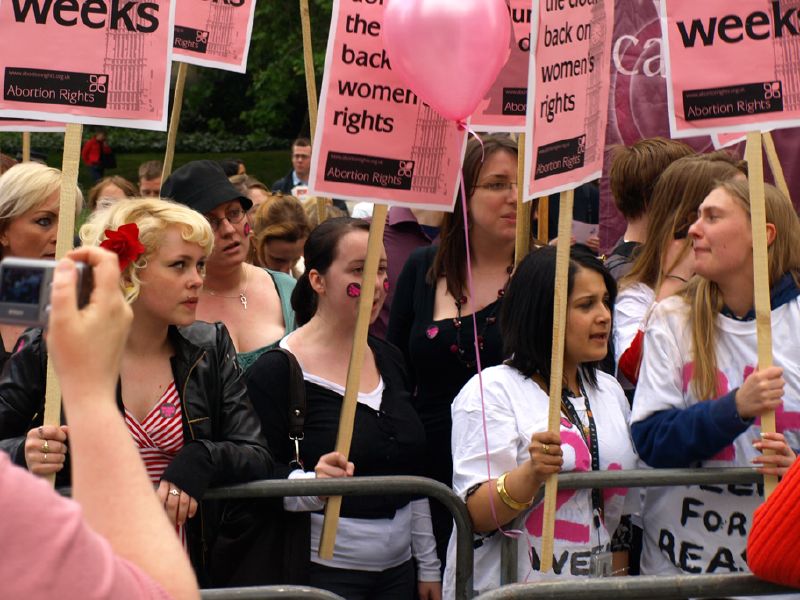- The High Court has ruled Northern Ireland’s abortion law breaches UK human rights in a landmark case described as “a turning point for women.”
Sarah Ewart fought the case in Belfast after she was forced to travel to England for a termination after doctors said her foetus would not survive outside the womb.
Ruling in her favour, Justice Siobhan Keegan said it was not right to make another woman have to relive the trauma Ewart had experienced.
‘A turning point for women’
Ewart, who has fought a six year campaign to change Northern Ireland’s law said the High Court’s ruling was “a turning point for women” who have campaigned against “outdated laws”.
England, Scotland and Wales are covered by the 1967 Abortion Act but that was never introduced in Northern Ireland where current law only allows termination if there is a risk to the woman’s life, or a risk of permanent and serious damage to the woman’s physical or mental health.
It means that incest, rape or a diagnosis of fatal foetal abnormality are not grounds for a legal termination in Northern Ireland.
Abortion and same-sex marriage for N Ireland
Justice Keegan said a formal declaration of incompatibility with UK human rights would not be made yet because of legislation passed in Westminster that will decriminalise abortion and extend same-sex marriage in Northern Ireland on October 21 – unless the Stormont assembly reconvenes before then.
Bernie Smyth, director of anti-abortion group Precious Life, was in court to hear the ruling and said: “It’s a very sad day that the court has denied the right to life for unborn children.”
‘Vindication for women’
Ewart said: “Today’s ruling is a vindication of all those women who have fought tirelessly to ensure that we never again have to go through what I did in 2013.”
She said the case had been a “massive stress emotionally on all the family” and that it “should never have had to come to this”.
In 2018, the Northern Ireland Human Rights Commission failed in their appeal to the Supreme Court on a technicality, despite a majority of the judges having agreed that existing legislation was incompatible with human rights law.
Had the case been brought by a woman made pregnant by a sexual crime or carrying a foetus with a fatal abnormality, rather than brought by the NIHRC, it would have had more merit, the judges said.
“Sarah [Ewart] should not have had to take this case in the first place,” said NIHRC member Les Allamby. “In 2018, the Supreme Court ruled clearly that Northern Ireland laws ran contrary to human rights standards.”
He added: “Parliament should have changed the law then without delay.”




